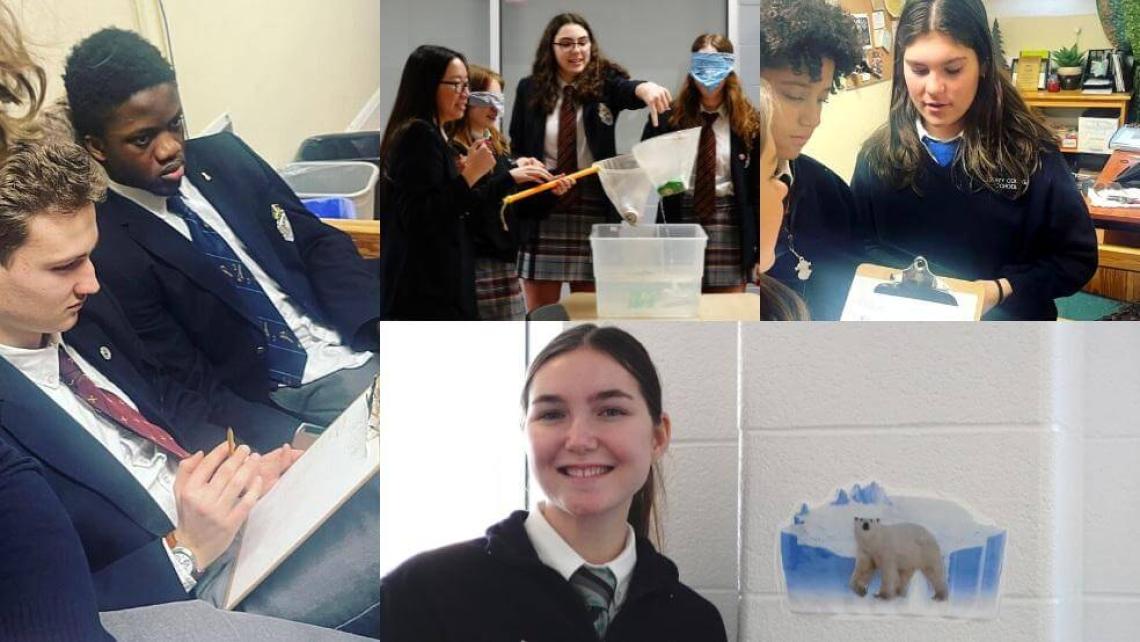Research by the World Wildlife Fund estimates that by the mid-21st century the Arctic could be completely free of sea ice in the summer months, due to the ongoing impacts of climate change. Polar bear populations that depend on sea ice – for travel, hunting and mating/nesting – are especially vulnerable to rising global temperatures.
Trinity Environmental Action Club (TEAC) sought to raise awareness of the negative impacts of climate change on polar bears through a series of initiatives recently, held in conjunction with International Polar Bear Day (February 27th).
On Tuesday, February 28th, TEAC hosted a “sweater day” in the Senior School. The temperature in buildings was lowered three degrees to reduce greenhouse gas emissions and show the effect even small changes in energy use can have on the environment. As TEAC leader Katie Gunther explained in chapel that morning: “By turning down the heat by three degrees, we as a school hope to cut down on our greenhouse gas emissions…gases in the Earth’s atmosphere that trap heat. Greenhouse gases are normal, however, human-made emissions are trapping and slowing heat loss in space. This unfortunately disrupts natural patterns in the atmosphere as well as on our planet by heating it up.” Students were encouraged to don sweaters and other warm gear, and in doing so to help raise awareness of the plight of polar bears, like our school mascot, Trina.
Then, on Tuesday March 7th, TEAC hosted an eco-scavenger hunt during afternoon flex block. The green reps from each of the 10 Senior School houses were tasked with creating a team that would visit stations around campus where TEAC had created environmentally-themed activities. With each completed task, the houses could earn points towards their total for the year-long Green Cup sustainability challenge. Activities included answering polar bear trivia, sorting waste correctly according to our local “Recycle Clean” rules, eco-Pictionary, a river clean-up simulation, and a take on “pin the tail on the donkey” involving polar bears and icebergs.
Thank you to the TEAC leaders and members for their effort and initiative in organizing these events, and raising awareness of how each of us can do “more good” to save polar bear habitats from the effects of climate change.
To learn more about polar bears and climate change, visit www.worldwildlife.org/pages/polar-bears-and-climate-change.






